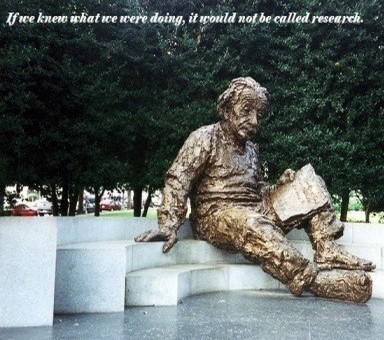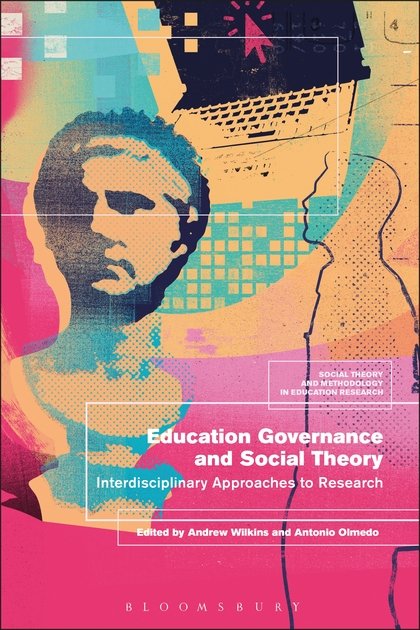Education research has a long history of adapting ideas from social theory. While this has always been the case when it comes to educational foundations, in recent years there has been an enormous growth in the adoption of social theory in the field of educational research. The names of theorists such as Pierre Bourdieu, Jürgen Habermas, Judith Butler and Michel Foucault have become commonplace in the field, making social theory increasingly familiar to those who both conduct education research and utilise it in their teaching. Publications such as the author’s own 4 volume set Social theory and educational research (Murphy, 2013a) and the popular Routledge collection Social theory and education research: understanding Foucault, Habermas, Bourdieu and Derrida (Murphy, 2013b) testify to this growing presence.
As its familiarity increases, so too does the desire to engage with social theory in more thoughtful and effective ways. There is currently a strong desire for applying social theory in educational research contexts, which makes sense, as without theory, much education research can be overly descriptive and/or restricted by narrow definitions of professional practice. Social theory can assist in efforts to transcend the everyday taken-for-granted understandings of education, while also reflecting erstwhile concerns in education around power, control, social justice and transformation.
The issue then becomes one of applying theory to method, with the focus shifting to a growing interest in the art of application itself. This interest comes with a set of key questions attached:
- how best to apply concepts such as habitus, subjectivation and performativity in educational research contexts?
- What are the ways in which methodological concerns meet theoretical ones?
- In what ways does social theory shape the quality of research outcomes?
These questions require thoughtful responses and the purpose of this new series, to be published by Bloomsbury Press is to help provide solutions to these issues, while also helping to develop the capacity, in particular of post-graduate and early career researchers, to successfully put social theory to work in research. This is especially important as theory application in method is a challenging and daunting enterprise. The set of theories developed by the likes of Foucault, Jacques Derrida, Bourdieu et al, could never be described as ‘simple’ or easy to navigate. On top of that there are a variety of issues faced when applying such ideas in research contexts, a field of complex interwoven imperatives and practices in its own right. These challenges – epistemological, operational, analytical – inevitably impact on researchers and our attempts to make sense of research questions, whether these be questions of governance and political regulation, social reproduction, power, cultural or professional identities (among others). So care needs to be taken when applying a challenging set of ideas onto a challenging set of practices, incorporating a strong consideration for both intellectual arguments alongside the concerns of the professional researcher.
The series will hold a strong appeal to the growing numbers of researchers who are keen to apply social theory in their research, as evidenced by the growing audience for the editor’s own website www.socialtheoryapplied.com. It will offer an excellent resource for those who wish to use theoretical concepts in their research but are not sure how to do so, and will appeal to readers who have a strong interest in better understanding how theory can be effectively applied in research contexts, in practically realisable ways.
In terms of outputs, the series is designed to provide a collection of books exploring various applications of social theory in educational research design, and will include a variety of texts, including single/co-authored monographs, edited volumes and readers/anthologies. Each book will provide a detailed account of how theory and method influence each other in specific educational research settings, such as schools, early years, community education, further education colleges and universities. The series will represent the richness of topics explored in theory-driven education research, including leadership and governance, equity, teacher education, assessment, curriculum and policy studies. It will also provide a timely platform for highlighting the wealth of work done in the field of social theory and education research, a field that has grown considerably in recent years and has made the likes of Pierre Bourdieu and Michel Foucault familiar names in educational discourse.
Key features and benefits:
- Explicit connections between theory and research practice
- Accessible and illuminating accounts of applied social theory
- Provides innovative ways of thinking about methodology in educational research design
Length: approximately 90000 words for each text
Companion website:
The series editor already oversees an established and popular website www.socialtheoryapplied.com that directly speaks to the issues addressed in the proposed series. I developed this space where issues in research could be fleshed out and explored in more detail, providing an online forum that offers the practitioner/researcher a suitable space to assist their acquisition, understanding and application of social theory (with an emphasis on the application).
Pedagogical features
Embedded in the design of the series is a strong pedagogical component – with a focus on the ‘how’ of applying theory in methods and an emphasis on operationalising theory in research. This pedagogical remit will be addressed explicitly in all texts – the responsibility of addressing this will fall to the authors and editors, but can take the form of case studies, learning activities, ‘focus’ sections and glossaries detailing the key theoretical concepts utilised in the research.
Call for proposals/expressions of interest: I am keen to talk to those of you who are interested in this topic and have ideas/plans for publishing in this area – that includes those of you who are nearing completion of doctoral theses as well as more established academics. The series has enormous potential for breaking new theory/method ground and I am open to suggestions from all areas of social theory, methodology and research topic. Please have a read of the short summary below and if you are interested in discussing this further, please get in touch with me, Mark Murphy via mark.murphy.2@glasgow.ac.uk (don’t forget the .2!)
All the best, Mark Murphy










